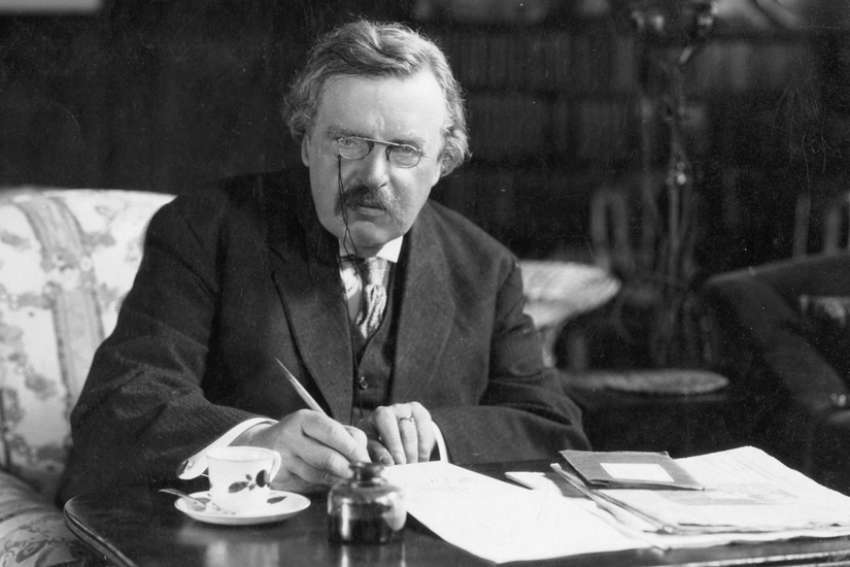The confession draws surprisingly little surprise from Fr. Ian Boyd, the world’s leading expert on the great Catholic apologist, and founding editor of The Chesterton Review for 46 years before his retirement in August.
“There’s an ecumenical dimension that allows evangelical Protestants to accept Catholic truth from Chesterton that they wouldn’t accept from anyone else,” he says from Edmonton, where he has returned after two decades of publishing the Review at Seton Hall University in New Jersey.
“They trust Chesterton because of his geniality, but also because it’s clear his use of the word ‘orthodoxy’ includes all those who believe in the Apostles’ Creed the way Christians used to accept it.”
Nor does the Saskatchewan-born Basilian find it unusual that young people born 60 years or more after Chesterton’s death in 1936 should find his voluminous writing inspiring now.
“(George Bernard) Shaw said that the world Chesterton was interested in was in the future rather than the past,” Fr. Boyd says. “He loves tradition, but he’s far more progressive than reactionary. He loves the ongoing revelation of everyday life.”
The element that’s kept the Review fresh and engaging over five decades is its refusal to turn Chesterton into an ossified cult figure, and its insistence on treating his writing as part of a philosophy for using imagination as a vehicle for perception.
“It’s a philosophy that can be applied to anything, and that makes it inexhaustible. Reading him or writing about him is like being a tourist where you go about the world and discover there’s a Chestertonian aspect of wonder to everything you look at.”
Fr. Boyd’s spirit was opened to that insight in childhood by his own father, who in rural Saskatchewan subscribed to the publication G.K.’s Weekly in the 1920s. Copies were passed down through family hands so that in 1974, when Fr. Boyd was in Scotland working on a doctorate, he was familiar enough with Chesterton to produce a book on his novels. That led to talk of starting the journal that ultimately became The Chesterton Review, which now has international reach in multiple languages.
It started publication in Canada until the move to New Jersey 20 years ago when Fr. Boyd moved to Seton Hall to teach. He stresses that while Chesterton’s own literary output was enormous — about 80 books from essays to biographies, apologetics, romances, detective fiction, about 200 short stories, hundreds of poems — he considered himself a journalist above all.
The sheer volume of Chesterton’s writing, combined with his capacity to spark fresh insight for succeeding generations, leaves Fr. Boyd confident that the transition of the Review’s editorship to his long-time colleague, historian Dermot Quinn, will be smooth and durable. The journal and the G.K. Chesterton Institute for Faith and Culture have also built up an endowment over the years that will keep them on a solid financial footing despite the vagaries of academic budget cuts.
Plans are being made for a 50th anniversary celebration of the Review and the Institute in 2024. It means Fr. Boyd will be shuttling between his priestly duties in Edmonton and the small team in New Jersey, which explains the timing of his retirement.
“I’ve been given the high sovereignty, but fairly empty, title of president, so I’ll still be involved. But I’ve been thinking for a while you should (retire) while you’re well rather than hanging on to the bitter end.”
The reasoning is distinctly Chestertonian. It philosophically accepts life’s natural story line combined with the foresight to sustain harmony and serve the interests of one’s community. Chesterton’s mood might have darkened somewhat between the World Wars, Fr. Boyd says, but he was almost genetically incapable of beginning, much less ending, anything bitterly.
There is an inspiration for the rising stars of generations to come.
(Stockland is publisher of Convivium.ca and a senior fellow with Cardus.)


